Hospitality TV Systems Elevate The Guest Experience
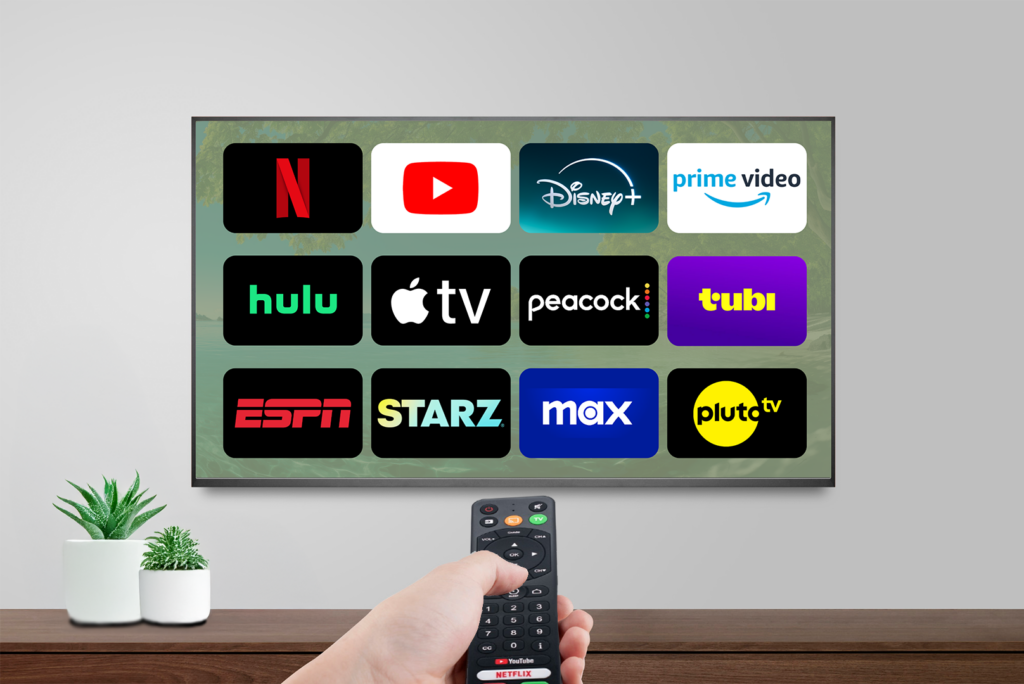
In today’s competitive hospitality industry, guest satisfaction and experience is everything. Travelers are no longer satisfied with a clean room and a comfortable bed—they expect convenience, personalization, and entertainment options that rival what they have at home. One of the most significant ways hotels can meet these expectations is through hospitality TV systems that integrate casting technology.
By enabling guests to stream their favorite shows, movies, and apps directly onto the in-room television, hotels can provide a seamless digital experience that increases satisfaction and loyalty. Let’s dive into why casting for hotels is becoming the new standard, how hospitality TV systems support it, and the long-term benefits for hoteliers.
Evolution of Hospitality TV Systems
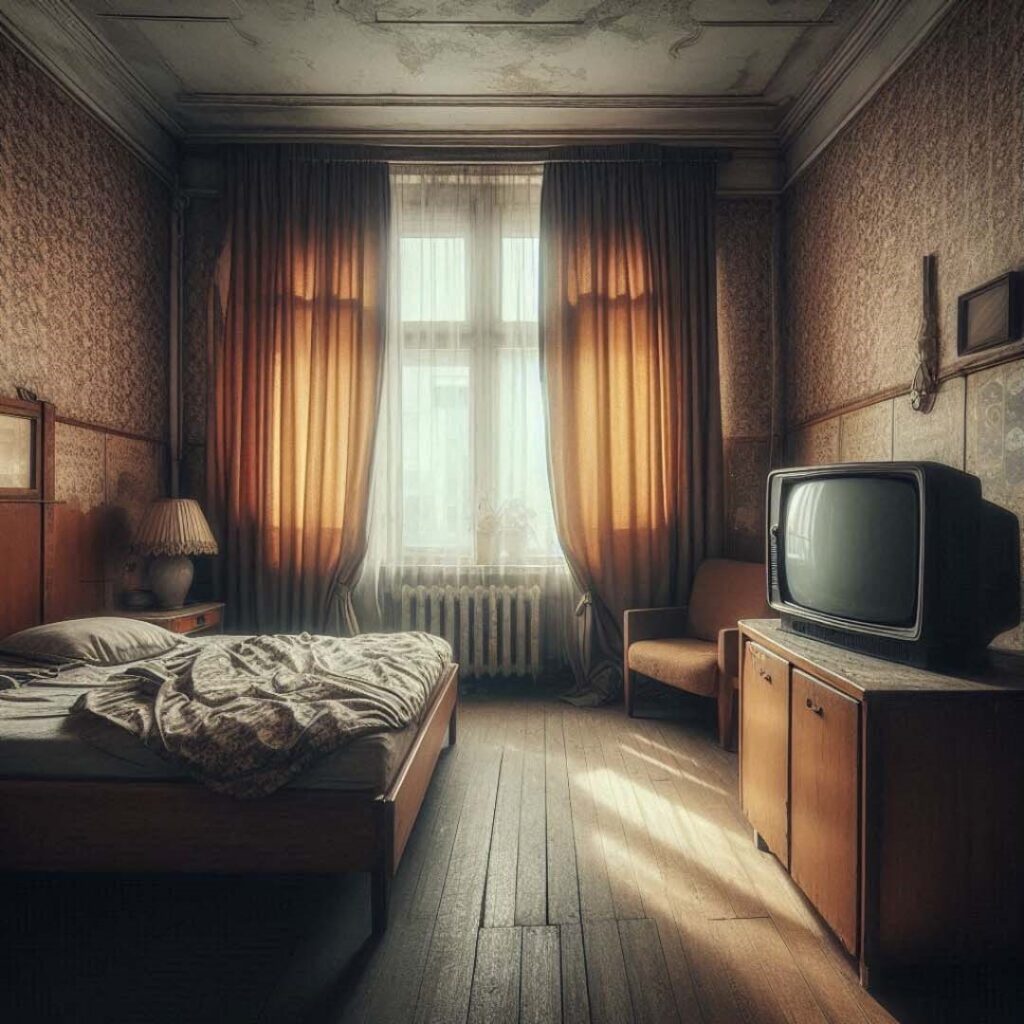
Hospitality TV systems have come a long way from the bulky tube TVs of the past. Historically, hotels offered standard cable or satellite TV — a one-size-fits-all approach that didn’t allow for personalization, on-demand content, or branding opportunities. The early 2000s saw the rise of pay-per-view hospitality TV systems, offering movies and premium channels for an extra fee, but these systems were expensive to install and maintain.
Then came the digital revolution. High-definition flat-screen TVs became the norm, and IPTV (Internet Protocol Television) technology allowed hotels to deliver content over a network rather than traditional coaxial cables. This was the start of a true transformation — hotels could now integrate branding, interactive menus, and guest services directly on the TV screen.
Today’s hospitality TV systems leverage cloud-based platforms, streaming services like Netflix and YouTube, and casting technology such as Google Chromecast. They can be customized to match a hotel’s brand and provide a truly seamless, home-like entertainment experience.
The Different Hospitality TV Systems
Basic Hospitality Cable Systems
These are the most affordable and simplest systems. They typically include a curated channel lineup and may include basic features like channel guides. They’re low-maintenance but lack interactivity and personalization.

Basic Hospitality Cable Systems
These are the most affordable and simplest systems. They typically include a curated channel lineup and may include basic features like channel guides. They’re low-maintenance but lack interactivity and personalization.

IPTV-Based Systems
IPTV systems deliver content via a hotel’s internet network. This enables HD or 4K channels, video-on-demand, interactive menus, language customization, and integration with property management systems (PMS). IPTV is an excellent choice for hotels that want a modern and interactive platform.
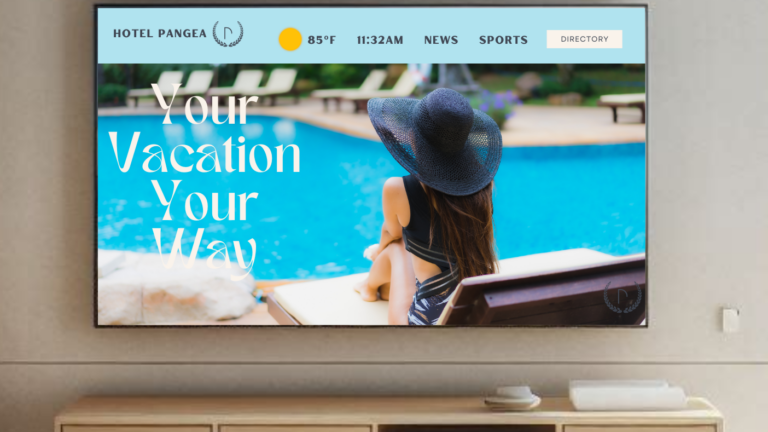
Casting-Enabled Hospitality TV Systems
Casting solutions allow guests to stream their own content from their devices to the in-room TV. This is one of the most popular options today, as it mirrors the way guests watch content at home. It also eliminates the need for hotels to purchase expensive on-demand movies since guests bring their own subscriptions.
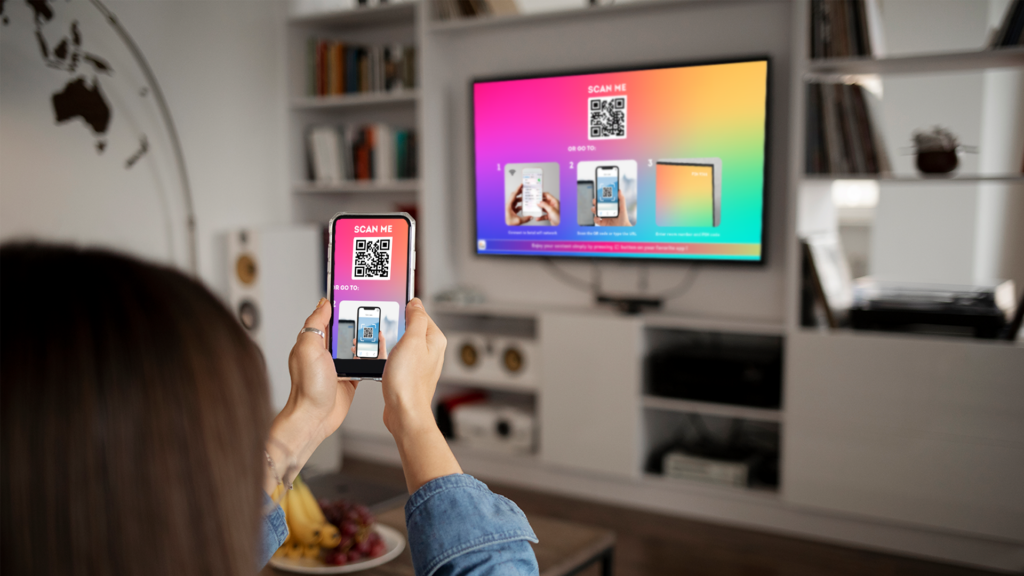
Casting-Enabled Hospitality TV Systems
Casting solutions allow guests to stream their own content from their devices to the in-room TV. This is one of the most popular options today, as it mirrors the way guests watch content at home. It also eliminates the need for hotels to purchase expensive on-demand movies since guests bring their own subscriptions.

Hybrid Hospitality TV Systems
Hybrid systems combine live TV, IPTV features, and casting capabilities. They are highly flexible and often cloud-managed, making them ideal for hotels looking for scalability and future-proofing.
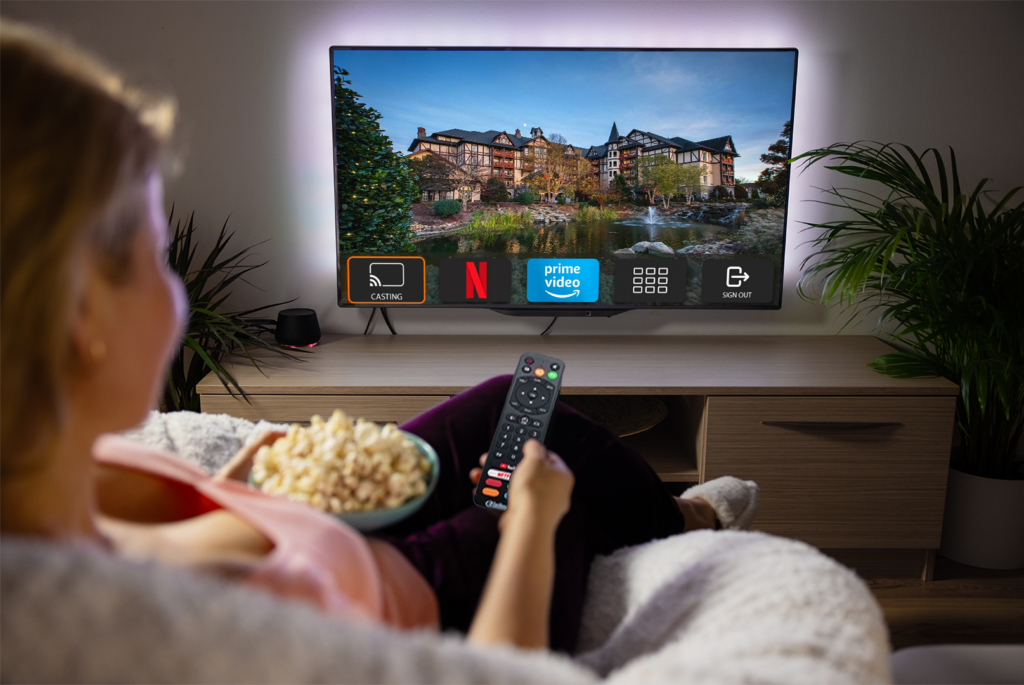
What is Casting for Hospitality
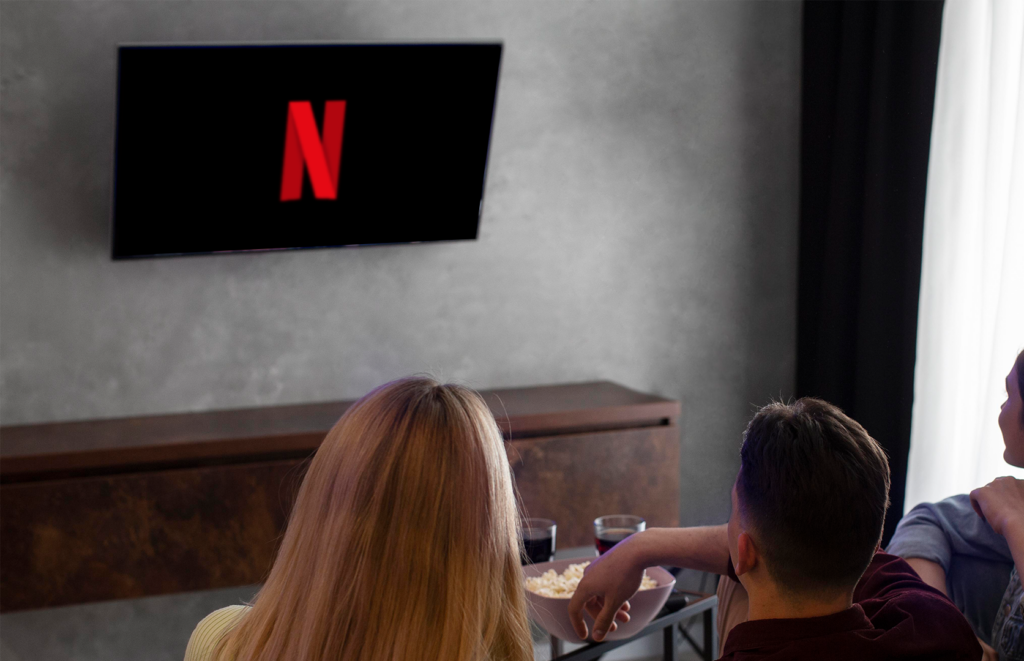
Casting allows guests to stream content from their personal device to the in-room television. It works similarly to how people use Chromecast or Apple AirPlay at home. In a hotel environment, casting is integrated into hospitality TV systems in a way that’s secure, user-friendly, and scalable.
What Hospitality TV Systems Offer
Modern hospitality TV systems go far beyond simply showing television channels. They can include:
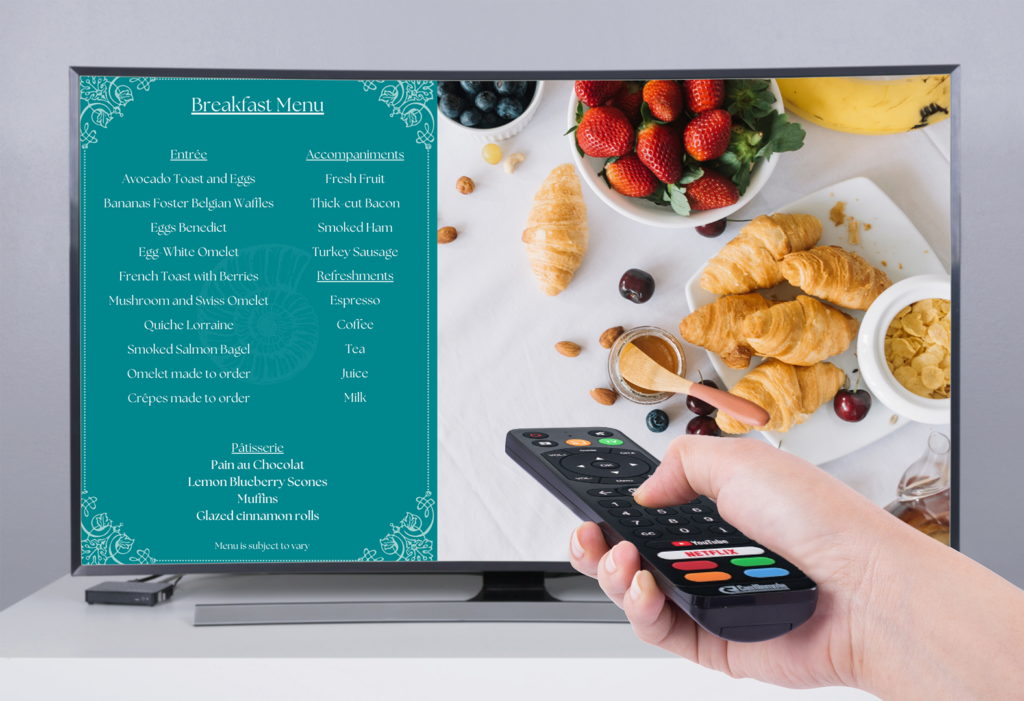
Branding and Customization
Hotels can feature their logo, branded welcome messages, and personalized greetings for loyalty members.
Interactive Guest Services
Guests can request housekeeping, view restaurant menus, order room service, and check their folio from the TV.
Revenue Generating Opportunities
Promote on-site spa services, upsell late check-outs, or advertise partner experiences directly on the TV.
Multi-Language Support
Cater to international guests with content in multiple languages.
Streaming and Casting
Let guests watch Netflix, Hulu, Disney+, or YouTube on the big screen safely and securely.
Seasonal Updates
Hotels can regularly change guest displays for different holidays, seasons, events, and more.
Benefits of Hospitality TV Systems for Hotels
For hotels, a modern hospitality TV system is more than an amenity — it’s a marketing and business tool.

Increased Guest Satisfaction
Guests expect a seamless entertainment experience similar to what they have at home. Casting systems allows guests to access their favorite streaming services just like at home.
Operational Efficeincy
Automated checkout and seamless casting reduce calls to the front desk, freeing up staff time.
Upsell Opportunities
Hotels can generate additional revenue by advertising services and promotions on the TV screen through custom slideshows and videos.
Cost Savings
Hospitality casting systems are an affordable upgrade for many hotels with a significantly lower monthly subscription cost than cable or IPTV.
Benefits of Hospitality TV Systems for Guests
From the guest perspective, hospitality casting systems make their stay more enjoyable and convenient.

Personalization
Guests can pick up watching a show right where they left off at home or browse content in their own language.
Ease of Use
Simple, intuitive interfaces make it easy for guests to find channels, movies, or apps.
Security and Privacy
Modern systems ensure that guest data (such as streaming logins) are cleared at check-out automatically.
Entertainment Variety
Guests have access to live TV, streaming, casting, and hotel-curated video content.
Why Hospitality TV Systems Are More Affordable Than Ever
Advancements in technology have significantly reduced the cost of deploying hospitality TV systems:
Lower Hardware Costs
Smart TVs are now standard and more affordable than ever, eliminating the need for costly set-top boxes in many cases.
Cloud-Based Management
Remote updates and monitoring reduce the need for on-site technicians, lowering operational costs.
Scalable Pricing
Many vendors now offer subscription-based pricing models, allowing hotels to pay per room per month rather than large upfront costs.
Competition and Innovation
With more providers entering the market, competitive pricing has driven down costs while improving quality and features.
The Future of Hospitality TV Systems

As technology continues to advance, expect hospitality TV systems to become even more guest-centric and intelligent. AI-driven personalization, voice control, and deeper integration with smart room features are already appearing in high-end properties. Soon, hotels may offer entirely contactless, fully personalized in-room experiences — and the TV will remain at the center of that ecosystem.
Conclusion
Upgrading to a modern hospitality TV system is no longer a luxury reserved for large resorts. Whether you operate a boutique hotel, a mid-sized chain, or a luxury property, there is now an affordable solution that fits your budget. These systems elevate guest satisfaction, streamline operations, and open up new revenue streams — all while being cost-effective and easy to manage.
If your hotel is still running on outdated cable or legacy systems, now is the time to make the switch. Guests expect more, and today’s hospitality TV systems can deliver — at a price that makes sense.
